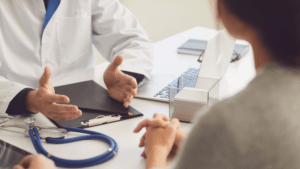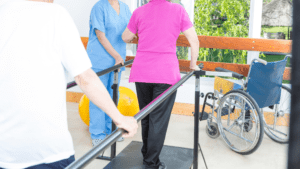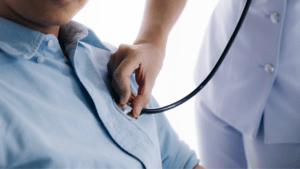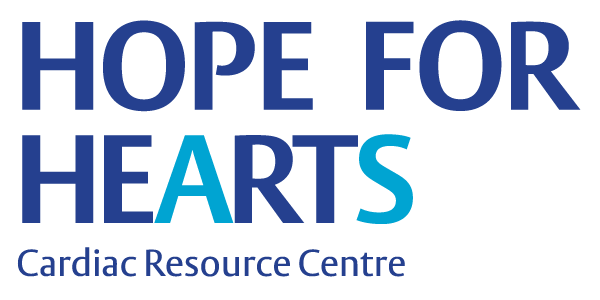If you have recently experienced a cardiac event, it is common to face feelings of distress, concern, or nervousness regarding the next steps forward. Healthcare professionals will work with you to ensure you feel comfortable and informed at every stage following the initial cardiac event.
While modern healthcare is highly individualised based on a patient’s medical history, symptoms, condition and other important factors, there remains a standard timeline of steps that are carried out to ensure the best level of care.

1. Reaching a diagnosis
For many patients, seeing a Cardiologist in an emergency department or hospital ward may be the first time you meet. Significant stress and uncertainty may be present during this time. Your healthcare provider’s primary goal will be to make sure that your health comes first.
During your first appointment following a cardiac event, your cardiologist will perform a general physical examination, as well as take a personal and family medical history, including lifestyle and hereditary factors.
The condition your cardiologist suspects you may have will likely determine the specific diagnostic tests you first undergo. Several other tests could be recommended to you based on the information gathered from these first assessments.
Common medical tests used to diagnose heart conditions include:
- Blood test
- Chest x-ray
- Coronary angiogram
- Echocardiogram
- Electrocardiogram (ECG)
- Exercise stress test
- Holter monitoring
- Magnetic resonance imaging (MRI)
- Stress test
Make sure that you speak to your specialist about any uncertainty regarding these diagnostic tests.
2. Determining Risk Factors
Understanding the role of your specific risk factors in your condition is of critical importance. Your heart specialist will discuss specific risk factors early on in your recovery timeline and advise any changes that can be made by you to reduce their impact on your health. 1
Common risk factors affecting the heart include:
- Diabetes
- High blood pressure
- High cholesterol
- Obesity
- Physical activity level
- Poor diet
- Smoking
3. Treatment Pathways
Following careful consideration of the test results and your individual symptoms, your heart specialist will determine the optimal course of treatment that is right for you. 2
Treatment pathways vary considerably depending on the condition and severity of a specific patient. Potential pathways for treatment include:
- Lifestyle changes
You may be advised by a healthcare professional to alter your daily habits/activity to improve the condition of your heart as you recover following a heart event. Lifestyle changes can be made in several ways, including through improving overall activity level, diet, emotional management, and exercise. 3
- Medication
The best medication suitable for you to take at home will be determined by both your cardiologist and doctor, allowing you to continue managing your heart health. To learn more about the medications relevant to you and how they should be taken, ensure you speak with your healthcare professionals.
- Procedures
Depending on the type of cardiac event and the degree of heart damage, medical procedures or surgery may be combined with medicines. Common procedures used to treat, investigate, and monitor heart conditions include, coronary angioplasty and stenting, coronary artery bypass surgery, heart valve surgery, and implantable cardiac devices (such as a pacemaker or implantable defibrillator). 4
4. Cardiac Rehabilitation
Further into your recovery process and typically after treatment has begun, a program known as cardiac rehabilitation is created by medical specialists to enhance their patient’s heart health and general health after a heart-related event, procedure, or diagnosis.
An individual patient’s physical and emotional well-being/capacity are considered while designing a rehab program, which commonly consists of exercise, education, and support components to encourage healthy lifestyle improvements.
A large, multidisciplinary team of medical specialists collaborate during cardiac rehabilitation with the goal of improving patient outcomes after a cardiac event. Among the medical personnel frequently involved in cardiac rehabilitation are:
- Cardiologist,
- Dietitian,
- Nurse,
- Occupational Therapist,
- Pharmacist, and
- Physiotherapist/Exercise Physiologist.

5. Continuing to take medication
It is important to continue taking your prescribed medication for the period specified by your doctor or cardiologist. Continuing to take these medicines will ensure that your heart is best suited for recovery after a cardiac event.
Make sure that you speak with your healthcare professional regarding any confusion or concern regarding the medications relevant to you. 5
6. Follow up with your heart specialist/GP
Making sure you regularly check in with your general practitioner and heart specialist is of crucial important. These recurring visits will allow healthcare professionals to monitor the progress of your recovery over time and evaluate the effectiveness of your medication.
They also provide you with an opportunity to ask further questions or voice any concerns you have regarding the recovery process, allowing for the appropriate changes to be made.

Navigating life after experiencing a cardiac event can be difficult, so having a strong support network of family, friends, and health professionals to aid you through the recovery process can make a big difference.
The recovery timeline not only provides an opportunity to develop a heart-healthy future plan with the help of your healthcare professional but also provides time for personal reflection on what you can do to promote your health long-term throughout daily life.
Disclaimer This information is general and not conclusive. Follow any guidelines and advice from your doctor or specialist, health care, or multidisciplinary team, for your personalised patient-centred needs and care. Inquire about a patient advocate group regarding your specific needs. Call 000 if you are experiencing chest pain.
To find a GP or a Cardiologist near you, visit www.hopeforhearts.com.au
Connect the Docs www.connectthedocs.com.au is a medical marketing agency specialising in therapy awareness campaigns, educating medical professionals and patients about common conditions.

